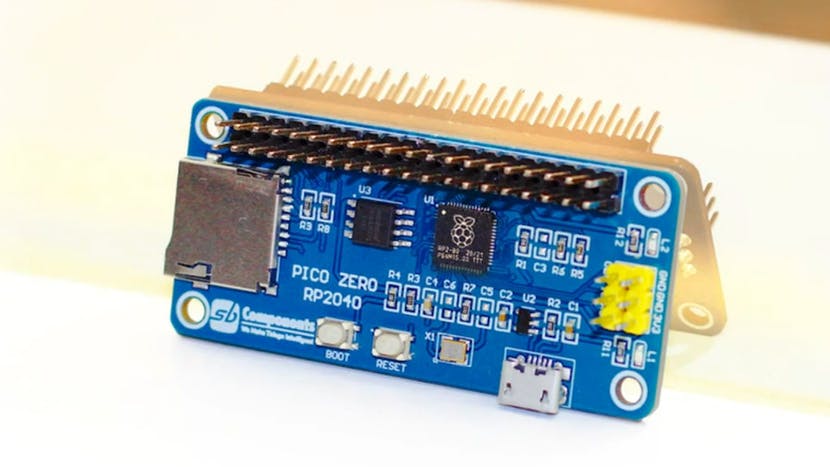
Ashish Kumar's StackyPi Puts an RP2040 Into the Raspberry Pi Zero Form Factor
from hackster.io
Maker Ashish Kumar has launched a crowdfunding campaign for a compact development board built by SB Components and designed to mimic the Raspberry Pi Zero form factor, but with an RP2040 microcontroller at its heart: the StackyPi.
"StackyPi is an compact and advanced board that is designed with the RP2040 microcontroller, which provides one set of 2×20 pin headers on which you can connect Raspberry Pi HATs [Hardware Attached on Top, a standard for add-on boards]," Kumar explains of his desing. "It means that one can plug HATs designed for Raspberry Pi and run it via the [StackyPi] RP2040 that would make the user perform the advanced functions on it."
Formerly known as the Pico Zero, the StackyPi is powered by Raspberry Pi's RP2040 microcontroller — giving it two Arm Cortex-M0+ cores, 264kB of static RAM (SRAM), and eight programmable input/output (PIO) state machines. To this, Kumar claims to have added "64MB" of flash memory — though given the RP2040 supports a maximum of 16MB of off-chip QSPI flash, this is more likely to be 64Mb/8MB.
The board's "main selling point" its compatibility with Raspberry Pi HAT add-ons. Not everything will work, of course, but by mimicking the Raspberry Pi's 40-pin header the StackyPi unlocks a range of accessories — and a microSD slot at the side provides some handy on-board storage.This isn't the first attempt we've seen to pack an RP2040 into the footprint of a Raspberry Pi Zero: Last year Solder Party teased the Zero RP2040, also known as the Meta Pico, though at the time of writing the board was not yet available to buy.
Kumar is funding production of the StackyPi via a Kickstarter crowdfunding campaign, where pricing starts at £7 for early bird backers compared to a £14 eventual retail price (around $9.50 and $19 respectively). Devices are expected to begin shipping to backers in March.



Leave a comment